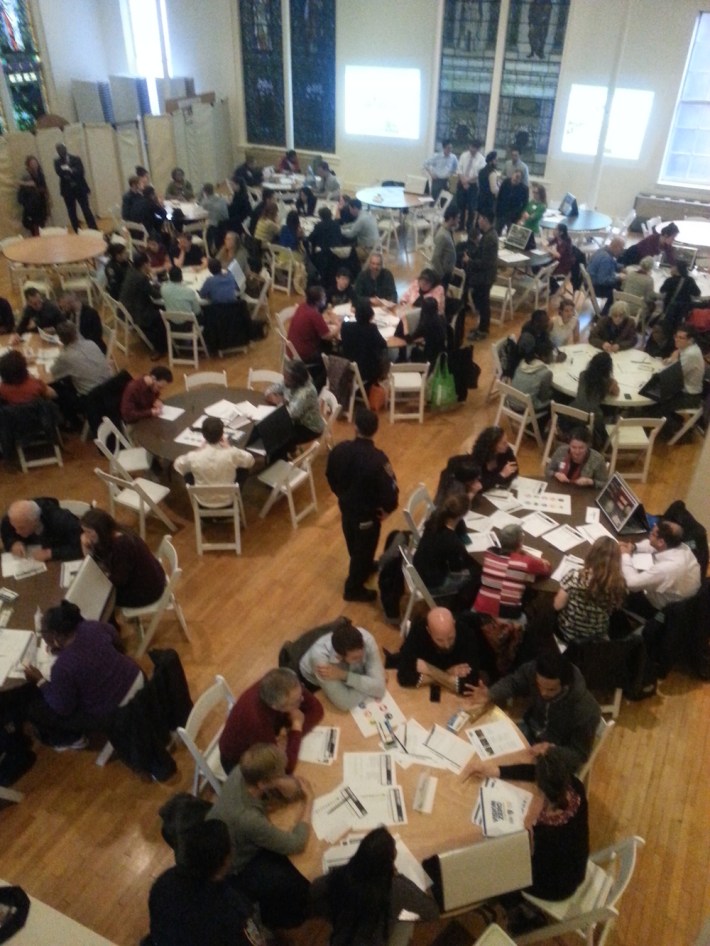Last night in Brooklyn Heights, at the first of nine Vision Zero pedestrian safety workshops, dozens of Brooklynites came to tell NYPD and DOT staff about dangerous streets in need of safety fixes in their borough.

These events, where groups of residents discuss traffic safety issues, are different than the Vision Zero town halls, which feature council members and officials from city agencies in a panel format.
Although Vision Zero encompasses all types of traffic fatalities, the workshops focus on pedestrian safety. "Pedestrians are kind of an indicator species," said Kate Fillin-Yeh, DOT's deputy director for policy, who noted that they comprise the majority of NYC traffic fatalities. “Streets that are most problematic for pedestrians are problematic for everybody," she said.
Participants sat down at tables of about seven people each, where DOT staffers gave a short presentation on pedestrian safety in the borough, highlighting, among other things, the role driver behavior plays in most pedestrian deaths and the disproportionate impact on seniors. NYPD officers joined the groups at most tables.
After the presentation, each table talked about traffic safety problems and came up with potential solutions, covering everything from speed humps to better enforcement. Participants were also encouraged to mark large maps of the borough to identify dangerous locations. An online map to gather feedback will be launched soon.
“It was informative. There was a good exchange of ideas," said Doris Cruz, chair of Brooklyn Community Board 10's transportation committee. Cruz said DOT seemed to be open to more types of traffic calming, such as arterial slow zones, than in the past. Cruz was particularly encouraged to see NYPD participation last night. "Until this administration, it was kind of the bottom of the pile in terms of police responsibilities," she said of traffic safety. “They have to retrain officers.”
DOT is hosting the workshops to gather input for pedestrian safety plans for each borough, which are scheduled to be released this fall. Fillin-Yeh said that in addition to the workshops and town hall meetings already underway, the agency could end up hosting more events to gather input. Since many street safety problems come down to nitty-gritty issues on a small scale, I asked Fillin-Yeh if DOT would be hosting workshops at a more granular level. “Most people don’t stay within their community board, so it’s more useful to do a workshop that’s a little broader in scope," Fillin-Yeh said. “But if you ask, we’ll show up."
The next workshop is scheduled for Tuesday at Brooklyn College, followed by workshops in the Bronx, Queens, Manhattan, and Staten Island.





